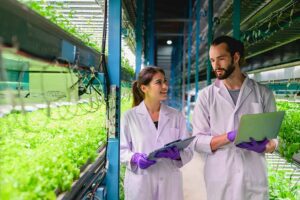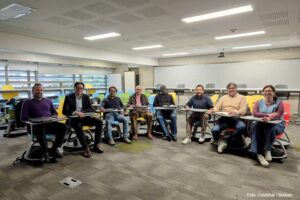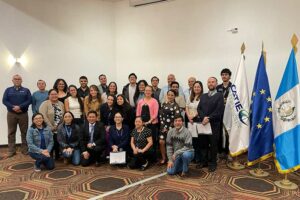UPC Students Participate in Environmental Management and Sustainability Training at CATIE
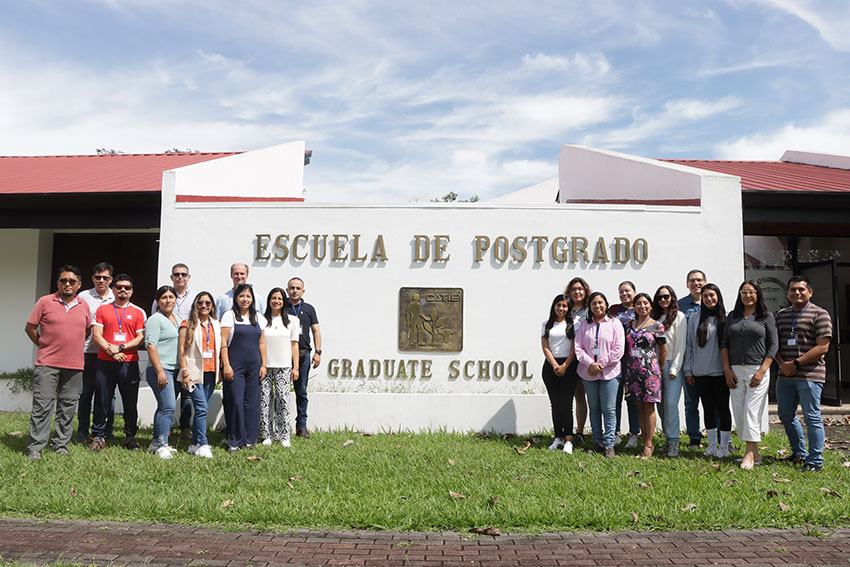
- Professionals from various disciplines take part in this exchange of knowledge and search for solutions.
From February 17 to 21, 2025, the Graduate School of CATIE (Tropical Agricultural Research and Higher Education Center) will host 19 students from the Peruvian University of Applied Sciences (UPC) for the training course titled Environmental Management and Sustainability.
During their stay, students will explore key topics on the degradation of air, water, and soil resources, as well as the challenges the environment faces due to human activity and solutions for its recovery.
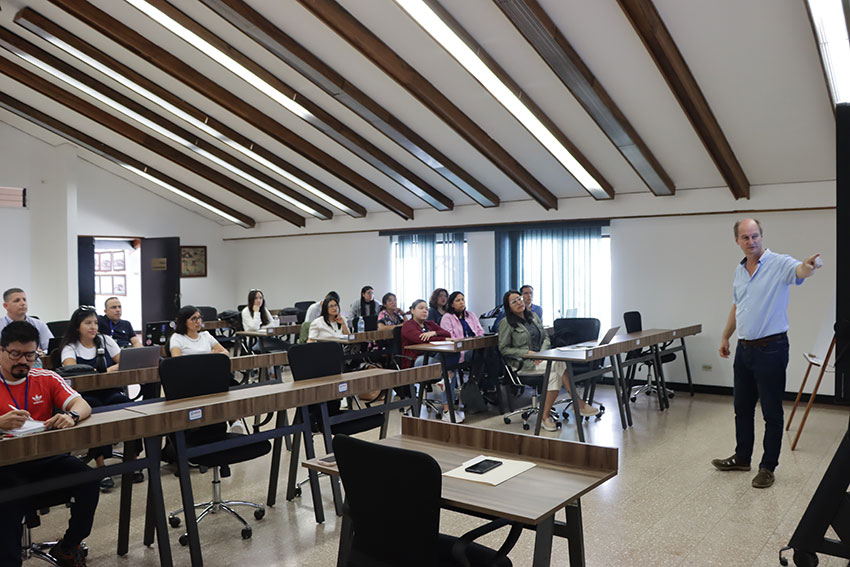
Professor Reinhold Muschler, leader of CATIE’s Agro-biodiversity and Food Security Unit, explained that the course covers fundamental aspects of managing these three essential resources. “We are addressing current challenges and solutions to restore water quantity and quality, recover soil health, and ensure clean air.”
As part of the training, students will go on field trips to learn about successful sustainability initiatives. One of the highlights will be a visit to an organic coffee farm with added value production, where they will observe product diversification strategies and other activities contributing to more sustainable agricultural production.
The student group is diverse and comes from different disciplines, enriching the exchange of knowledge and experiences. “It is very interesting to see this variety of backgrounds, from lawyers, accountants, and environmental engineers to professionals in mining and sustainable production. This allows for discussions on different approaches to environmental solutions,” Muschler emphasized.
Aldo Hurtado, a textile engineer and student of the Master’s program in Environmental Management and Sustainability at UPC, highlighted the importance of this training for his field. “In the textile industry, we seek to optimize processes to reduce water consumption and mitigate environmental impact. This industry is one of the most polluting in the world. Therefore, it is crucial for us as professionals to implement measures to reduce its ecological footprint,” explained Hurtado.
For her part, Susy Contreras, an anthropologist and also a student in the same master’s program, emphasized the course's relevance to her work in social and community fields. “This training helps us better understand watershed management, environmental issues, and ecological crises. Additionally, learning about experiences such as clean energy plants and agricultural innovation projects provides us with tools to mitigate environmental impacts in our workplaces,” noted Contreras.
The training at CATIE offers these professionals a unique opportunity to deepen their understanding of sustainability strategies and apply this knowledge in their respective sectors, promoting innovative solutions to today’s environmental challenges.
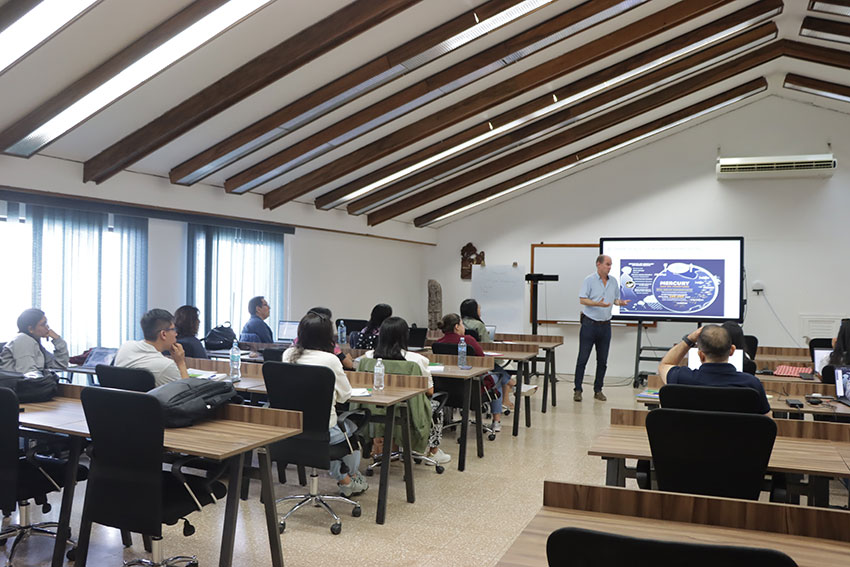
More information:
Reinhold Muschler
Leader
Agrobiodiversity and Food Security Unit
CATIE
rmuschler@catie.ac.cr
Área de Capacitación
CATIE
capacitacion@catie.ac.cr
Written by:
Karla Madrigal
Communications Officer
Communications and Marketing Office
CATIE
karla.madrigal@catie.ac.cr

